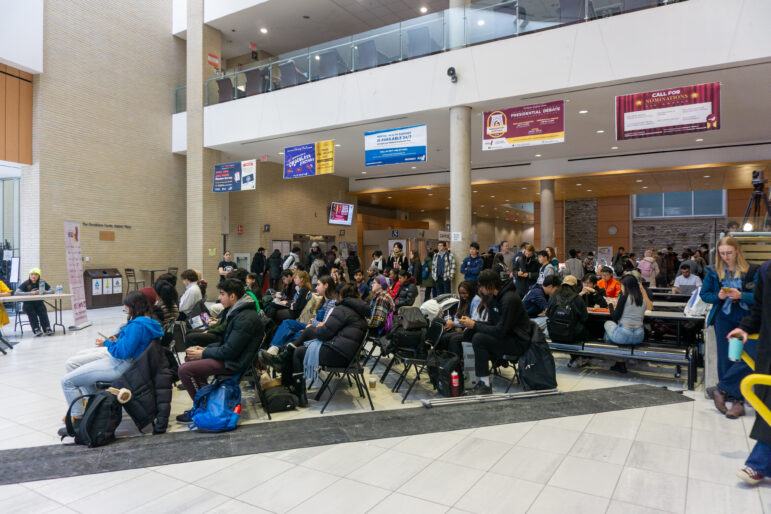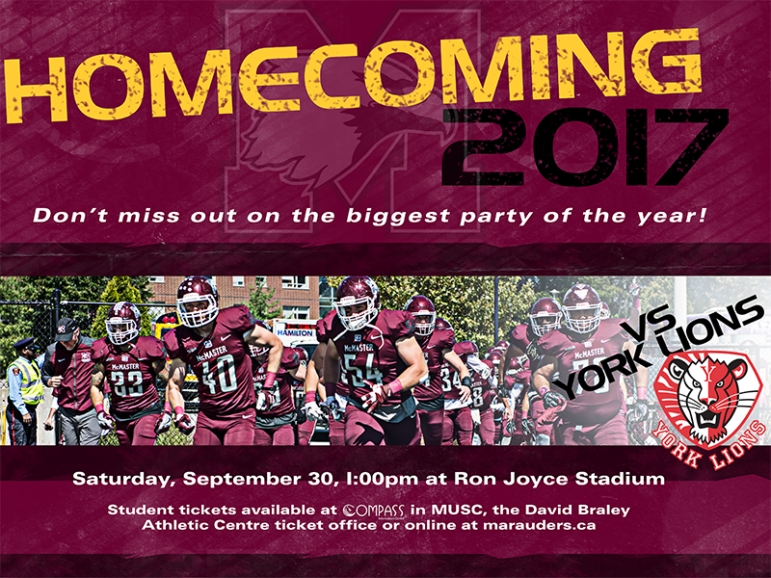This post was a bit delayed getting published. It was written in January.
The after-effects of “Zoom U” were evident during this year’s McMaster Student Union’s presidential debate.
Having begun their university education behind a screen, just another square on Zoom, all four candidates campaigned on ensuring future students can have the student life experiences denied to them by the pandemic.
The four candidates view Hamilton as a place they do not visit, and Hamiltonians should be thankful for the economic activity McMaster generates. They all agree that the city’s nuisance party bylaw targets students and lessens their student life experiences.
Muhammad Ammad Ahsan, Luca Bernardini, Jialiang (Kevin) Hu, and Jovan Popovic shared similar platforms to increase funding to campus clubs, hold more events, and create a fun culture on campus.
Will increasing funding to MSU clubs help? What about spending on more expensive and popular performers for MSU events? Should larger clubs get more funding?
These questions dominated the 2024 presidential debate.
Candidates agreed that tuition should not increase and that food should be more affordable – but they were not referring to grocery prices.
Other than briefly mentioning the campus food bank and providing free soup at lunch, the candidate’s discussion of food affordability focused on the cost of buying hot meals on campus and from commercial restaurants off campus.
Housing received a passing reference during the debate, but only to say McMaster University needs to build more student housing.

Alienation from the City of Hamilton
The City of Hamilton? The student leaders had harsh words for a city they feel no connection to.
One candidate confidently declared that Hamilton has a “fainting legacy of being a Steel City” and should be thankful for the economic activity students bring.
Each candidate denounced the nuisance party by-law, with one describing it as giving “police all power to, let’s just say, abuse power against students” and another as “discrimination” because it only targets student street parties.
“They are anti-student; students do not vote,” declared another candidate of how City Council views students and why.
McMaster Homecoming
The candidates want McMaster to have an official homecoming again and to work to “channel the energy of students” to prevent incidents such as the 2021 car-flipping from reoccurring.

In 2017, McMaster University rebranded Homecoming as “the biggest party of the year.”
The students took the new brand to heart, holding large street parties in Ainslie Wood and Westdale that year. The tradition has continued since. McMaster University has disassociated itself from the annual homecoming parties.
Presidential candidates all called for McMaster to organize sanctioned events on campus in an attempt to stop unsanctioned street parties.
AI and Academic Integrity
The student leaders had a thoughtful discussion regarding AI and academic integrity. All four say students should be allowed to use AI to complete assignments and essays.
One of the candidates thoughtfully cited how statements regarding the use of ChatGPT mirror concerns created when the Internet, and then Google, became study tools used by undergraduates decades ago.
Notably absent from the debate was any discussion of the City’s new rental housing licensing bylaws, property standards, or HSR transit.
Other Topics
In the days before the COVID pandemic, the Society of Off-Campus Students was the most mentioned campus club during debates. SOCS was not mentioned this year.
Jovan Popovic Re-Elected
Popovic won this year’s presidential election, becoming the first MSU president to be re-elected in over four decades.


McMaster Student Union is missing a major opportunity when they don’t insist on being part of the housing solution. Currently McMaster University treats student housing as another revenue stream for the operations of the university. As a result students are merely tenants from which Rents are extracted, much like students from which tuition (another Rent) is extracted. Instead MSU could demand that all student housing be co-op housing where students operate and control their own living quarters. This does a few things including making student housing more affordable, empowering students to govern themselves and not be treated like a peon, and creates a sense of community.
Agreed. Thank you for adding to the discussion.